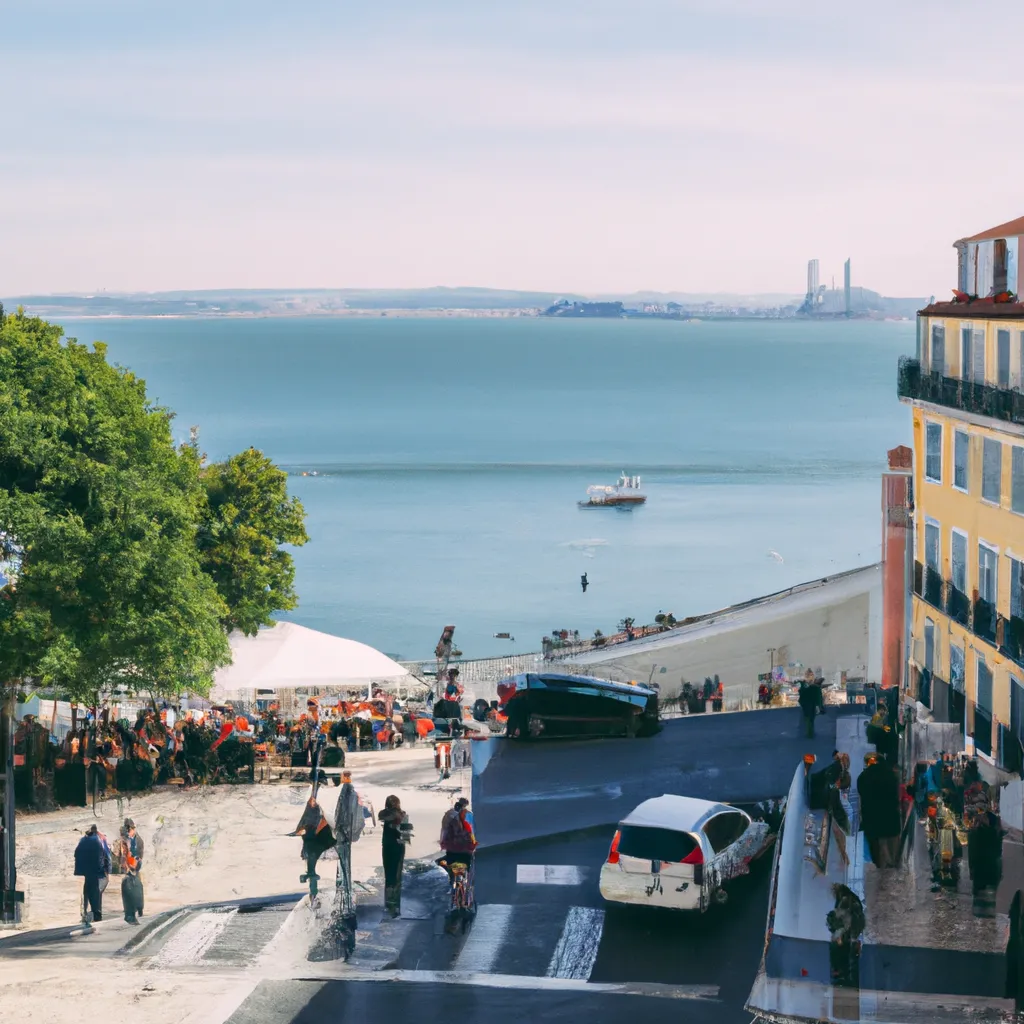Portugal: a symbol of Europe's growing crisis of expensive housing

Portugal is facing an indomitable rise in real estate prices after attracting wealthy foreigners with its investment incentives. Housing costs in Lisbon rose 5.8 percent in November to a record €5,426 (about $6,000) per square meter, according to data from Idealista.
The second biggest increase was in Athens, the most active real estate market among major European cities tracked by Bloomberg. Home prices in Portugal's capital have risen 30% in the past five years, making it more expensive than Milan, Madrid and Berlin.
Although the Portuguese government is trying to curb demand by shutting down the golden visa program and cutting tax breaks for new residents, its efforts are having little effect. Demand far outstrips supply and this is creating difficulties for most Lisbon locals for whom access to new housing is becoming unaffordable.
Although the end of the era of low interest rates is affecting purchasing power across Europe, the shortage of supply is affecting prices in many cities. Six of the ten cities tracked by the Bloomberg City Tracker show rising prices. Athens is up 12% year-to-date, Stockholm is up 5% in the last six months, and Madrid and Milan have steady growth of more than 3%. A once-forgotten real estate market with surviving buildings, has become a target for investment after an international bailout in 2014. The government removed rent controls and introduced the so-called "golden visa" - a route to residency in exchange for a €500,000 investment in real estate - as well as tax incentives to attract new residents. Shortly afterwards, thousands of foreign buyers arrived in Lisbon in search of deals as the country recovered from the financial crisis. Among them was super-rich Swiss billionaire Claude Berda, founder of French radio station AB Groupe. In 2016, he purchased his first land on one of Lisbon's seven hills with an investment from local investor José Cardoso Botelho. They formed Vanguard Properties, which now develops nearly a dozen residential buildings in the city of half a million residents. Demand was so high that sales often began before construction. There have been cases where a particular building took eight years to complete the building permit process.
Lisbon, the capital of Portugal.
13 May 2025
14 May 2025
13 May 2025
14 May 2025

In 2022, the amount of affordable housing in Portugal has reached its lowest level in 15 years, according to data from Confidencial Imobiliário, a company that collects information on the real estate market. Public housing accounts for just 2% of total supply, one of the lowest rates in the European Union.
While average prices for new housing in Lisbon exceeded those in Dublin and Brussels, according to data from Deloitte. For many Portuguese families earning some of the lowest salaries in Western Europe, the dream of buying their own homes has been replaced by expensive and poor quality rentals on the outskirts of the city.
The situation in Lisbon shows
how difficult it is for governments to control housing prices. Perhaps demand can be stimulated through various incentives, but it takes time and money to support supply. A crooked equilibrium on this issue could cause spikes and recessions.
Fears are growing that today's price increases could soon reverse. Portugal's central bank said last month that lending institutions should form additional capital investments to cover potential real estate losses. The decision came after home sales in Portugal fell 22% in the first six months, according to Jones Lang LaSalle, a real estate services company.
With real estate unaffordable and rental prices skyrocketing, more and more Portuguese are living in unacceptable conditions. About 40 small houses have already been built in the wooded area of Quinta dos Ingleses, a suburb of Lisbon. "Every day new people show up," said Filipe Silva, coordinator of a homeless program at a social workshop on the outskirts of Lisbon.
"They are mostly people who are working but can't afford to pay for accommodation." This plot of land is close to the Nova School of Business and Economics and an English school where payments can exceed €1,000. Rising inequality has caused tensions and thousands of people took to the streets earlier this year to protest the housing crisis in Lisbon and other Portuguese cities, mirroring discontent elsewhere.
The Portuguese Socialist government responded by promising to increase the amount of affordable housing and end incentives for foreigners. However, taking Portugal out of the market may not be easy.
"Ultimately, the country's hot climate, great beaches, lifestyle and relatively low cost of living will continue to attract interest from foreign investors," said Pedro Coejo, CEO of real estate investment firm Square Asset Management.
© 2023 Bloomberg L.P.Tags
Comment
Popular Offers

Subscribe to the newsletter from Hatamatata.com!
Subscribe to the newsletter from Hatamatata.com!
I agree to the processing of personal data and confidentiality rules of Hatamatata













